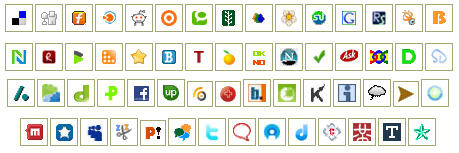Is there a place for Social Media in K-12?
Social media seems to hold great potential for learners to collaborate and communicate. But it also makes a lot of people nervous about it being such a public platform. Is it appropriate for kids to be using social media? Is it appropriate for it to be used in schools? Is it appropriate for teachers to communicate with students outside of school, using social media?
It makes group communication much more effective
One of the reasons many teachers like being able to use social media tools with students is that it makes it much easier to send out group announcements and reminders to a class. Additionally, it creates two-way communication – anyone can post an idea, or respond to another group member, very easily as well.
Using social media encourages students to share their work with others. This gives students early exposure to feedback and constructive criticism, as well as editing work based on peer input – which is often very different from teacher or parent input. It also can give a confidence boost to shy students who may not start out being very comfortable opening up their thoughts to others.
Plenty of students get lost because they’re not comfortable speaking in front of a group, or don’t think quickly enough to participate in a fast-paced verbal discussion. These students can flourish online, where they have time to compose their thoughts and edit a post before it goes live.
It encourages inappropriate interactions
Boundaries become blurred once you can reach someone anytime, anywhere, and the media we use to view homework assignments are the same media we use to post vacation pictures to our friends. Once you friend a student on Facebook, will you remember not to include them in the next photo you post hanging out with your friends on Friday night? Will you think about them being in the audience the next time you post a status update about an R rated movie you’ve just seen?
If a student can see homework updates and messages from a teacher alongside messages from friends, will they start to treat the teacher like a friend? Should they feel they can contact a teacher any time of day or night without respecting office hours or waiting a day for a response? Will they have the same respect for a homework assignment that’s posted in a Facebook stream along with updates about food and bodily functions?
New media, old problem?
Teachers have always had some sort of communication with students outside of school, whether it was running into them in the neighborhood store on a weekend or getting a phone call about an overdue assignment. Do we really want to ban all forms of teacher-student interaction outside the four walls of the classroom? Or do we just want teachers – and students – to learn to think more responsibly about the consequences of their actions?
Actions that take place online via social media are much more public and have more far-reaching ramifications than offline activities. They’re also more permanent than an embarrassing moment that might be quickly forgotten. Whether the problem is a new one or not, it is certainly magnified through social media.
Perhaps we need to be more vigilant about separating work from play. What about available free tools like Edmodo and Edublogs that can be used to harness the power of social media, without mixing in the personal? Will students spend as much time checking their Edmodo page as they do their Facebook page? Will they see updates as quickly? Will they be as interested in an extra assignment posted on a “school” website as they would be if they saw it on Twitter?
The Bottom Line:
Social media is not going away. Kids are going to be socializing online with friends one or the other, why not turn at least some of that time into productive learning? The social profiles that kids create as they grow up will follow them in ways that previous generations never had to think about – ignoring it won’t make it go away, but it will lead to kids making bad decisions. It may not always be easy to know where the lines should be drawn, but opening a discussion between teachers and students is definitely the first step.
Image credit: http://www.flickr.com/photos/ivanwalsh/
Elisa teaches online professional development courses for teachers at teachertechtraining.com.
Register now for Teaching With Games - starts Monday January 4, 2016. Save $50 - Register by December 7, 2015!
Tags: k-12, social media, Web 2.0 Tools





 A passion for creating educational multimedia, especially digital games. Fascinated by the challenge of integrating gameplay mechanics with educational content to create a true intrinsic learning experience. Interested in technology and special ed, digital storytelling, and science education. Closet science geek (shhh!!!)
A passion for creating educational multimedia, especially digital games. Fascinated by the challenge of integrating gameplay mechanics with educational content to create a true intrinsic learning experience. Interested in technology and special ed, digital storytelling, and science education. Closet science geek (shhh!!!)